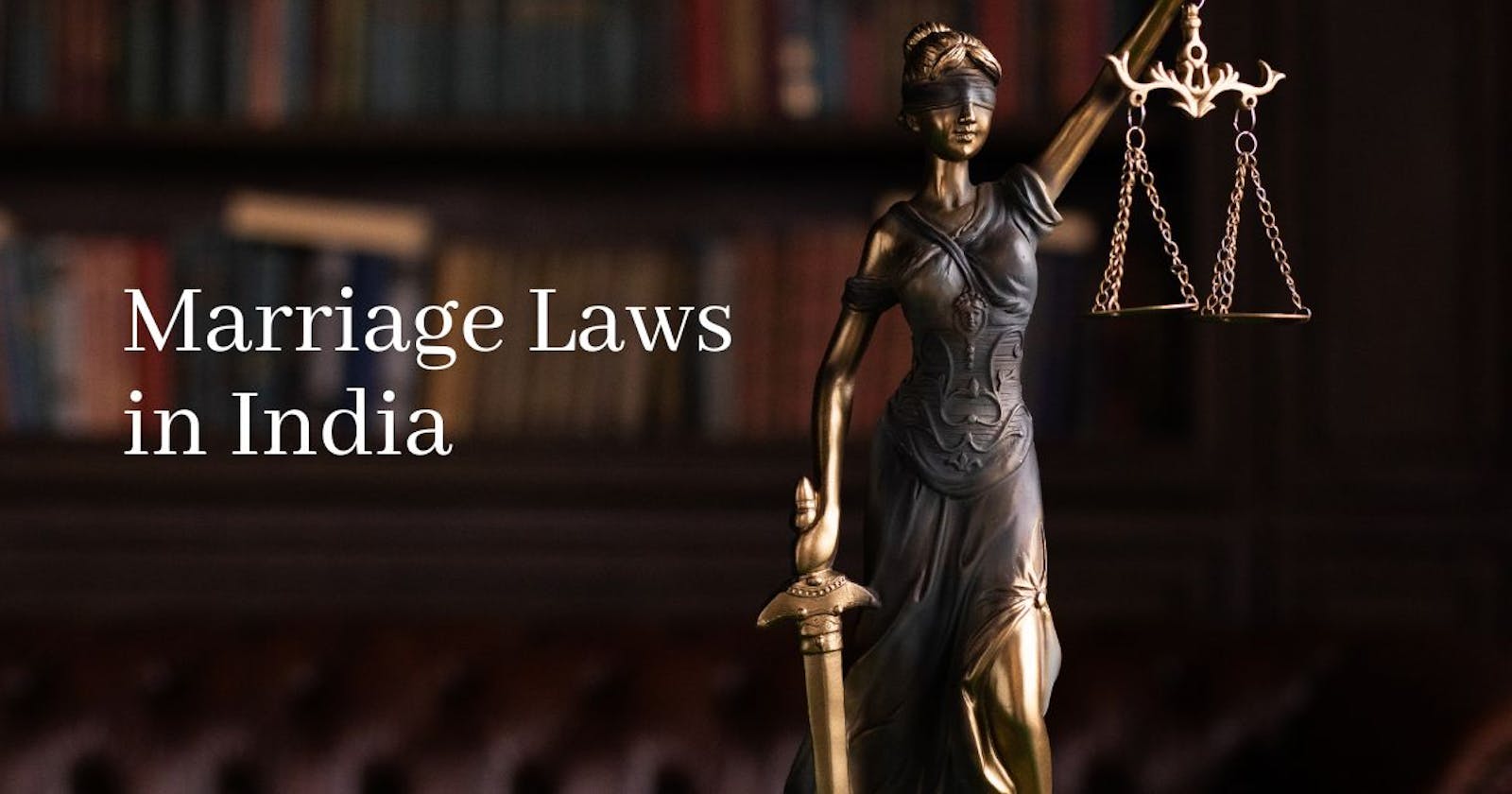What are the different Marriage Laws in India?
Marriage laws guard the fundamental rights of both partners in a marriage.
Table of contents
Marriage is the most significant part of everyone's life, which binds two souls for a lifetime. India is a secular nation where everyone has the constitutional right to practice any religion they choose. In India, numerous religious personal laws establish marital regulations. The four different forms of marriage laws in India are Hindu marriage law, Christian marriage law, Muslim marriage law, and Special marriage law. The only official document that appears to prove a marriage between two adult Indian residents is a marriage certificate.
The Marriage Act is followed when registering a marriage. Every government facility, bank, and other private institution will recognize a marriage certificate as valid documentation. All married couples in India are required to have marriage certificates by the Supreme Court of India. This was a ground-breaking move made to defend women's rights in India. Several advantages and characteristics come with marriage registration. Marriage laws guard the fundamental rights of both partners in a marriage. Over time, individual laws that formally register marriages for Indians of various religions have been passed.
These rules differ from one another due to the wide range of religious practices. Even when the Parliament changed certain laws, others remain in effect because of customs.
Let's take a look at various Indian marriage laws:
1. Hindu Marriage Law: There are some laws has been enacted for every religious person living in India to formally control post-marriage activities. According to the Hindu marriage act, there are some provisions. No one is allowed to have more than one husband or wife at once in a Hindu marriage. Therefore, if someone wants to get married after getting married once, they must have the divorce certificate; if not, they should have the death certificate in case their first spouse has passed away. Moreover, independent permission for the marriage of the bride and groom is required. Any type of mental disorder shouldn't be present in them. If this happens, their former spouse must give written permission for the marriage.
2. Islamic Marriage Law: Muslim marriages are consummated through the nikahnama, a civil contract. Both parties must be psychologically prepared for marriage as a condition of marriage registration in Muslim society. A contractual status is created as a result of the proposal and acceptance. The aforementioned requirements must be met before such legal barriers can exist. However, there must be present witnesses from both sides. The marital status of Muslims in India is different and unique to them. In muta marriages, the couple stays together for a certain period to fulfill their needs before divorcing. Muta unions are forbidden for Sunnis. All Indian Muslims who got married after 1981 had to have their unions registered, according to a registration act that established Muslim Marriage Law.
3. The Christian Marriage Law: According to the Act, marriage is solemnized at a church when priests, pastors, or ministers are present, by the rules established by the Indian Christian community. According to Christian marriage regulations, some conditions must be met for a marriage to be legal. These conditions are:
• The bride and groom should be at least 21 and 18 years old, respectively.
• The bride and groom must be married willingly and without coercion from anyone.
• At the time of marriage, neither party should be currently dating somebody from a previous marriage.
• The law requires that at least two eyewitnesses be present during the wedding. Both sides must agree to this.
4. Special Marriage Act: All Indian citizens are subject to the Special Marriage Act. This statute allows anybody, regardless of religion, to perform and register their marriage. If someone wants their marriage to be registered under this Act, they need to provide the marriage officer a notification. The following crucial conditions must be taken into account for a valid marriage:
• When getting married, neither of the parties should have a spouse who is still alive.
• When the couple was married, the bride had to be older than 18 and the groom had to be at least 21.
• To get married, both partners must be mentally well.
• The bride and the groom cannot be blood relations or share ancestors.
Within one month of the marriage, a notification is required for court marriage registration and must be given to the marriage registrar. During this process, supporting documents are also prepared to serve as proof of age, identity, address, and other legal requirements.
